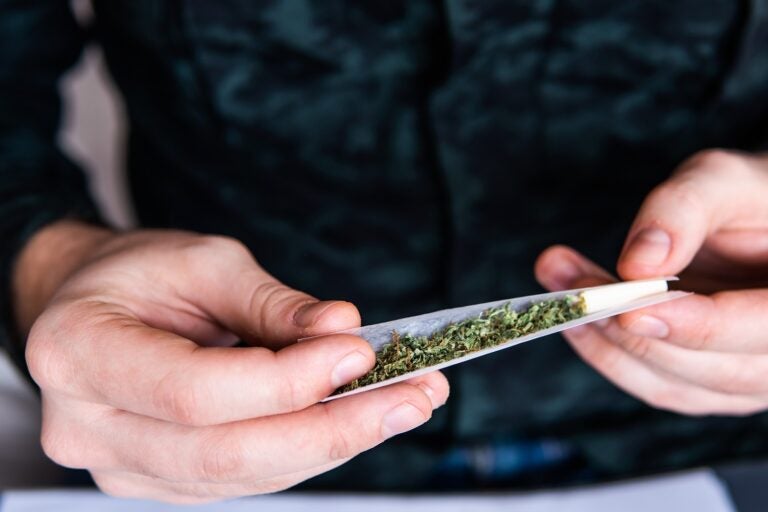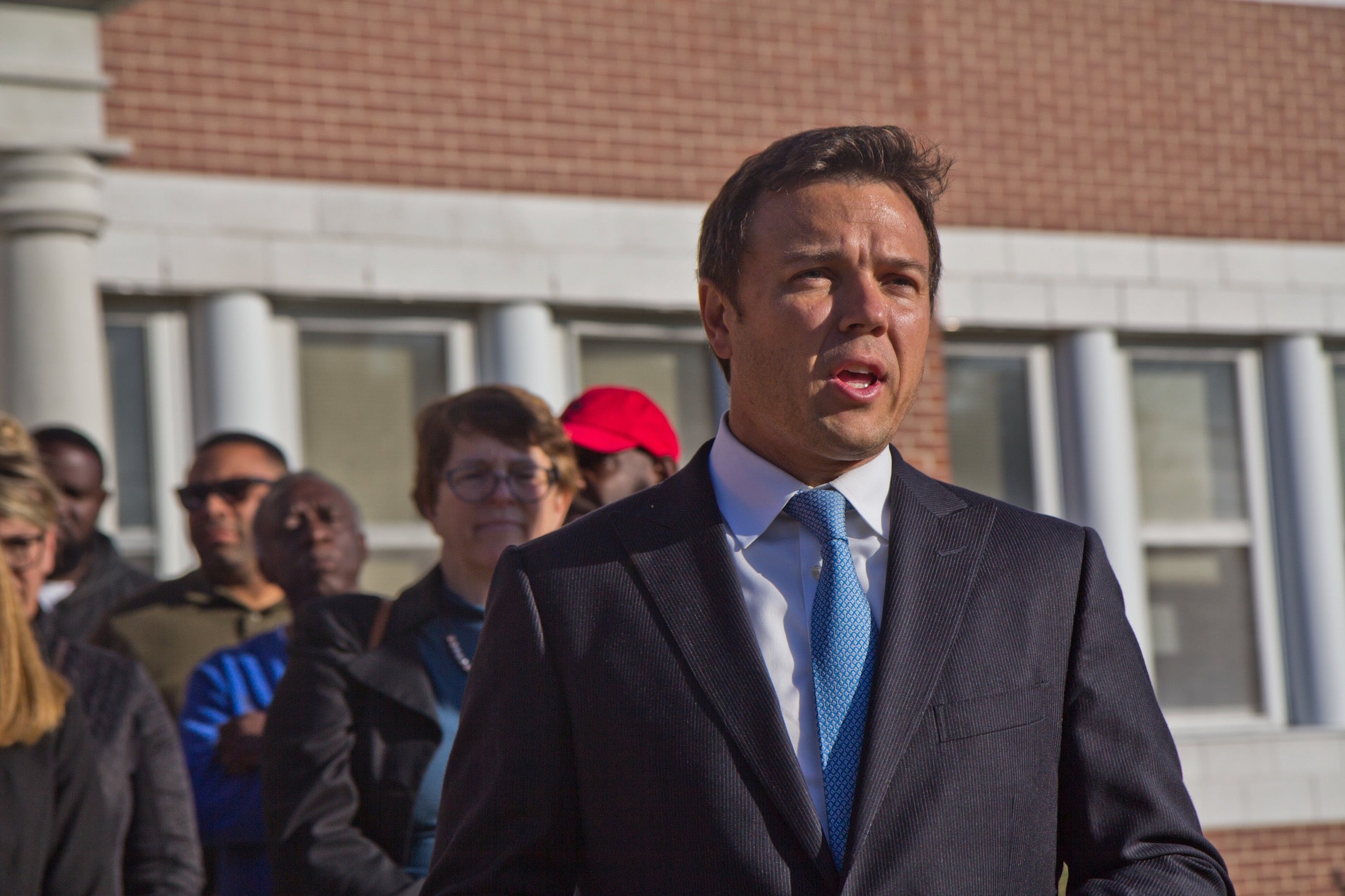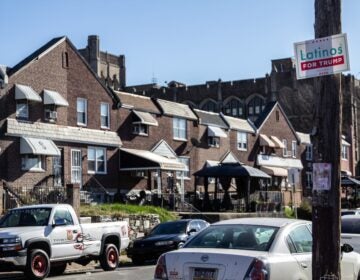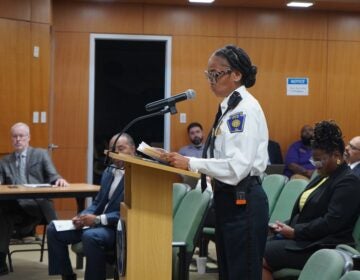A closer look at Delaware County’s new marijuana ordinance
While the law does not decriminalize marijuana, the changes make small marijuana infractions civil violations, rather than criminal misdemeanors.

A man rolls a marijuana joint. (Bigstock/cendeced)
Delaware County’s newly enacted marijuana ordinance makes possession of small amounts a civil violation, rather than a criminal misdemeanor. But some are saying county officials should have gone a step further to undo the damage caused by decades-long criminalization of drug use.
“Right now, we have people who are going to make millions of dollars by selling weed legally. And for those people who were doing it before then and weren’t harming anyone, we need to do something about expunging records or allowing them to get back into society in a good way,” said Jacquie Jones, a lawyer and member of the Delco Coalition for Prison Reform.
According to Jones, this ordinance cannot fall under the umbrella of criminal justice reform if people are still being punished for prior violations.

“We have to look back and try to fix that,” Jones said.
Delco officials acknowledged that the ordinance is just a start.
“This is a step in the right direction. A first step, but it’s a step,” said Chris Welsh, the new director of the Delaware County Public Defender’s office.
The County Council unanimously passed the ordinance on Nov. 4, and made the purchasing, possession or smoking of “small amounts” of marijuana a civil violation as opposed to a criminal act.
“Our entire council is excited about the fact that we were able to move this forward, and just put the county on the trajectory for the future,” said Monica Taylor, the council’s vice chair.

Possession of 30 grams or less of marijuana in Delaware County is now considered a public health violation and could come with a $50 fine.
All revenue created by the ordinance will be used to fund the county’s current and future drug and alcohol treatment programs.
What the ordinance doesn’t do
The new law does not decriminalize marijuana — the drug is still listed as a Schedule I controlled substance and remains prohibited under Pennsylvania’s criminal statutes.
Prior to the adoption of the new Delaware County ordinance, individuals who were in possession of a small amount of marijuana could have been charged with a misdemeanor under state law, which could mean up to 30 days of imprisonment and a $500 fine.
The changes offer his office greater flexibility, said Delaware County District Attorney Jack Stollsteimer.
“[What] I intend to do as district attorney is to use my power under Pennsylvania law to tell law enforcement agencies not to charge a misdemeanor crime, which still remains a crime in Pennsylvania for a small amount of marijuana, but instead charge the civil ordinance. So, what we’re essentially doing is providing law enforcement with another tool in the toolbox,” Stollsteimer said.
The ordinance resulted from a collaboration between the County Council, local law enforcement, the district attorney, and other city officials. In fact, it was one of the platforms of Stollsteimer’s campaign for district attorney prior to being elected in 2019.

The council conducted several meetings to discuss the ordinance with an expert panel including Lt. Gov. John Fetterman, local law enforcement, and public health and legal experts, as well as to address the concerns of community members.
“It’s important to note that this [ordinance] does not apply to use for possession on the grounds of a school or public property, and also in terms of minors,” Councilman Kevin Madden said.
No longer an option: Incarcerating ‘our way’ through drug use
Among the ideas shared prior to the council’s public hearing on the ordinance was an anecdote from Timothy Bernhardt, Upper Darby Township’s superintendent of police, about a person he had arrested a while back for marijuana.
“The individual proceeded through the court system and pled guilty to simple possession. It was not until years later that I heard from this individual. Unbeknownst to this individual, [they] had a criminal record and was not aware until graduating from college. That arrest for simple possession of marijuana has prevented that individual from obtaining professional licensing,” according to Bernhardt’s written testimony.
Though the ordinance cites the “substantial cost to taxpayers as well as to law enforcement, prison, and court resources” as one of the reasons for the changes, county officials also acknowledged the War on Drugs’ impact on communities of color and the adverse effects that come with a marijuana conviction.
“Marijuana possession being a criminal offense really disproportionately affects communities of color, and the criminalizing of drug use hurts families and communities. It also compounds social and economic inequities, and it unfairly denies millions of people in our country the opportunity to support themselves and their families, which is just the long-term effect that a criminal sentence can have on a record,” Taylor said.
Citing “40 years of evidence,” Councilman Madden said that incarcerating “our way” through drug use is no longer an option.

Those sentiments were echoed by Vivian Smith, chair and professor of criminology at Cabrini University, who studies the War on Drugs and its disproportionate effects on communities of color.
“[The ordinance] is just really kind of acknowledging that the War on Drugs has not worked,” Smith said.
Uniformity in policy and community reaction
Another reason for the new ordinance was to address the inconsistency with which some municipalities in Delaware County handled marijuana offenses. Areas such as Folcroft and Upper Darby had already adopted their own local ordinances, according to Stollsteimer.
“What we’ve essentially done here is make the policy uniform across the county,” the district attorney said.
County officials also wanted to make it clear that the ordinance is not an endorsement of marijuana.
“I think we have had a few folks who misunderstood the law to be condoning or even promoting the usage of marijuana,” said Brian Zidek, who chairs the County Council. “That is not what this ordinance does. This ordinance on the face only gives law enforcement additional tools, so when we explained what actually happened, even those who were initially opposed to it didn’t find it to be terribly objectionable.”
According to the council, the community has been largely supportive of the new law.
“I got an email today from somebody saying, ‘Thank you. This will really help to decrease the burden in some of the poor communities in Delaware County who are disproportionately impacted by incarceration for small amounts of marijuana,’” Zidek said.
Though Jones, of the Delco Coalition for Prison Reform, was initially worried about the actual rollout of the changes, she said she was relieved to hear that Stollsteimer was on board.
“Seeing that the district attorney was involved made me more positive, and [the ordinance] might actually have an impact,” Jones said.

Get daily updates from WHYY News!
WHYY is your source for fact-based, in-depth journalism and information. As a nonprofit organization, we rely on financial support from readers like you. Please give today.







